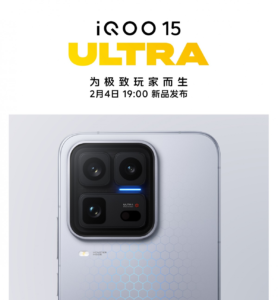Google abandons Samsung foundry and switches to TSMC: Tensor G5 uses 3nm process

Tensor G4 is Google’s last mobile phone chip manufactured by Samsung . Next year’s Tensor G5 will be outsourced to TSMC, using TSMC’s second-generation 3nm process (N3E) , and Tensor G6 will use TSMC’s N3P process. It is reported that Google is not interested in launching 2nm for the time being.
Currently, chips such as the Snapdragon 8 Extreme Edition released by Qualcomm and the Dimensity 9400 released by MediaTek all use TSMC’s second-generation 3nm process (N3E), which means that the Tensor G5, which will be unveiled next year, will lag behind its competitors in advanced processes by another year. However, Google has finally bid farewell to Samsung’s foundry.

According to supply chain information, next year’s Pixel 10 series will debut the Tensor G6. It is reported that Google and TSMC have reached a strategic cooperation and successfully advanced the Tensor G5 chip samples to the design verification stage, which is the tape-out stage that everyone has heard of.
As a key link in chip manufacturing, the importance of tape-out lies in its ability to test whether the chip design is successful. This is also a key stage for Google.
Unlike other mobile phone manufacturers, Google’s biggest difference is that, like Apple, it controls the core operating system ecosystem and application distribution of smartphones. Its biggest weakness is chips. Tensor is the key link for Google to supplement its core capabilities.
Public information shows that Google has been working with Samsung since the first generation of Tensor chips. The original Tensor chip was based on Samsung’s Exynos, so Tesnor is more like a custom chip defined by Google and designed and manufactured by Samsung.
Unlike previous generations of Tensor, next year’s Tensor G5 has extremely special significance and value for Google. This generation of chips is independently developed and designed by Google and uses TSMC’s 3nm process, which is worth looking forward to.
Industry insiders pointed out that self-developed chips will enable Google to take more initiative in the era of artificial intelligence, but it also faces many challenges such as technology and cost. However, with its strong financial strength and technological accumulation, Google has occupied a favorable position in this “chip manufacturing” competition.

Kazam is Focused on creating and reporting timely content in technology with a special focus on mobile phone technology. Kazam reports, analyzes, and reviews recent trends, news and rumors in mobile phone technology and provides the best possible insights to enhance your experience and knowledge.













